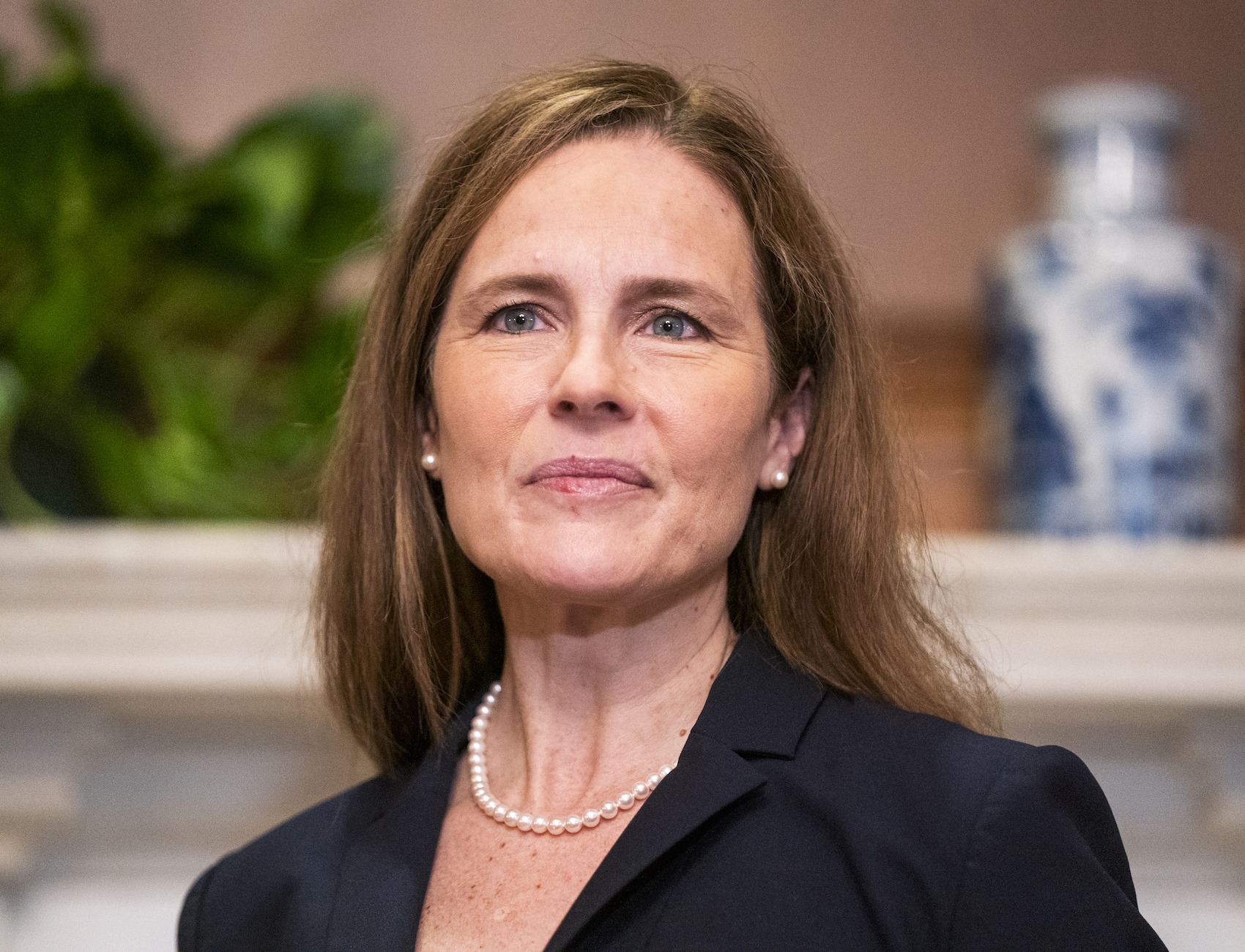

By Gabriella Garcia
On Oct. 27, former academic Amy Coney Barrett was confirmed as the new Supreme Court Justice just over a month after the passing of Justice Ruth Bader Ginsburg and a week before the election.
The 48-year-old lawyer and jurist was confirmed by a 52 to 48 vote, making her the youngest woman to sit in the Supreme Court. Barrett’s nomination was met with civil unrest as many believed it should have waited until after the election.
Now, as Justice Barrett officially sits on the Supreme Court, citizens recall a time when Senate Republicans denied former president Barack Obama’s nomination, Merrick Garland. Garland was denied a seat in the Supreme Court because his nomination followed the death of Justice Antonin Scalia in early 2016 — months before the presidential election.
President Donald Trump previously nominated Barrett for the U.S Court of Appeals for the 7th Circuit in November 2017. Outside of serving this court for nearly three years, Barrett has no jurist experience. 
Barrett’s main professional experience is as professor of law at Notre Dame Law School. She spent two years in private practice and has never tried a case, argued an appeal, or argued before the Supreme Court.
An immediate concern is the potential passage or rejection of the Affordable Healthcare Act on Nov. 10th. On this day, the Supreme Court is scheduled to hear arguments on whether the act should remain in place or be thrown out.
President Trump has openly expressed his disapproval of the bill and has been determined to abolish it throughout his time in office, causing many to question his true intentions behind nominating and confirming Justice Barrett.
Justice Barrett follows conservative ideologies, supporting the pro-life movement and the Second Amendment, while remaining critical on topics such as the Affordable Healthcare Act, current immigration policies and LBTQ+ rights. She also belongs to a conservative Catholic “covenant” community known as People of Praise, raising concerns about her ability to separate church and state.
As election day nears, Democrats urged Justice Barrett to recuse herself from any upcoming cases relating to the election. Additionally, Pennsylvania county lawyers recently petitioned against her ability to weigh in on any matters regarding the election and questioned the credibility of her appointment, stating, “The nomination and confirmation of a Supreme Court Justice this close to a presidential election is unprecedented.
“As concerning as that is, what is even more troubling is the language President Trump has used in consideration of this nomination, linking it directly to the electoral season at hand, with implications for his own re-election.”
The petition goes on to provide examples of when President Trump has implied he deliberately expedited her nomination and confirmation process. His main motivation in doing so is to ensure his success in the upcoming election.
The Washington Post assembled a team of social and data scientists to determine just how conservative Justice Barrett is but also how much of an impact that would ultimately have on the Supreme Court’s ideology.
In comparing all decisions made by each of the 13 U.S Court of Appeals since their creation, researchers found Justice Barrett closest in her conservative ideologies to that of her mentor and late Justice Antonin Scalia. Moreover, they estimated the Court’s ideology to shift significantly as a result of her appointment — creating “the largest ideological shift caused by a single seat’s replacement during [their study of the] 40-year period.”
In taking late Justice Ruth Bader Ginsburg’s seat in the Supreme Court, Justice Barrett has solidified a 6-3 conservative majority on the court.
Although Justice Barrett has promised to abide by the wills and desires of the American people and not her own beliefs, her loyalty to her religion and fellow conservatives has left citizens unsettled — anxious to see the role it plays in her decision-making as Supreme Court Justice.
Support our work – to become a sustaining at $5 – $10- $25 per month hit the link:

And liberal judges show no loyalty to fellow liberals? Puh Lease……
Would be much better if she were disloyal to her religion and fellow conservatives?
Probably a good example of why you shouldn’t go to the polar opposite in this case
David, etal.
As a Catholic, I know about equal #’s of liberals, moderates and conservatives… and also know some uber-liberals, and uber-conservatives… we are not monolithic… even though ‘catholic’ means ‘universal’…
A judge, or ANY public official, should check their religious and/or partisan proclivities at the door… I’ve done that… but at the end of the day, when making a ‘tweener’ call based on facts, laws, regulations, etc., can I say there is no ‘slight bias’? No.
SC justices are called upon to be even more ‘detached’ than other public employees… think soccer… refs are not supposed to do anything beyond ‘enforcing the Laws’ [yes, soccer has ‘laws’, not ‘rules’], but they are also expected to understand the ‘spirit’ of the Laws… including context and intent… most legislative actions have a preamble that starts, “it is with the intent of”… then, in law, one is supposed to look at ‘time, place, and manner’…what made sense in the time, place, manner in 1825 (things have changed…), should look at the intent, not the words only…
In Soccer (futbol), a referee is supposed to not just look at the ‘laws’, but also the ‘spirit of the laws’ while making judgements… the SC was established to be the ‘referee’… to the extent that they don’t, we should add laws/amendments, for their impeachment… on very, very, very narrow grounds…